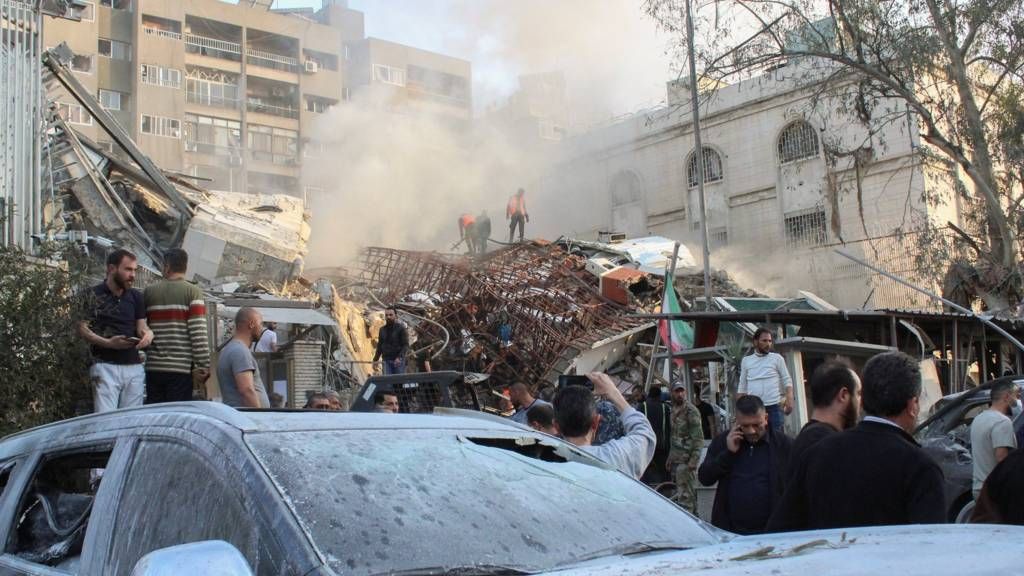In Tehran, demonstrators have flooded the streets to denounce the strike on their consulate in Damascus.
Expressing his views to Reuters news agency, protester Mohammad Razavi stated, “We know that this act is done out of desperation and the regime [Israeli government] is in a serious predicament and is caught in an internal crisis and the war in Gaza. It is natural that, in line with the crisis-solving strategy, it tries to transfer the crisis from the inside to the outside to free itself a little, so this rude action can make it easier for them.”
Razavi emphasized the need for a robust response, stating, “We must have a serious answer to this action, like the answer we gave during the assassination of General Soleimani, and this answer must reach the whole world.”
Another protester, Kosar Adhami, emphasized the sanctity of embassies, saying, “The embassy is considered part of a country’s territory. There should definitely be a firm response to this action. For us to sit quietly is not the right thing to do at all because [Israel] would dare to target more positions and may tell itself why not Tehran next time? Fitting revenge must be taken.”
Regarding the Damascus attack, here’s the latest information:
- The Iranian consulate building in Damascus, Syria, was destroyed by a strike at about 17:00 local time (14:00 GMT) on Monday.
- Iran has attributed the attack to Israel, indicating escalating tensions between the two nations.
- Iran’s Islamic Revolutionary Guards Corps has confirmed seven of its members were killed, including commander Brig-Gen Mohammad Reza Zahedi.
- Iran’s foreign ministry spokesperson has declared Iran’s right to retaliate against the “aggressors” responsible for the Damascus attack.
- The Israeli military has declined to comment on foreign media reports.
- A White House spokeswoman stated that US President Joe Biden is aware of the reports.

